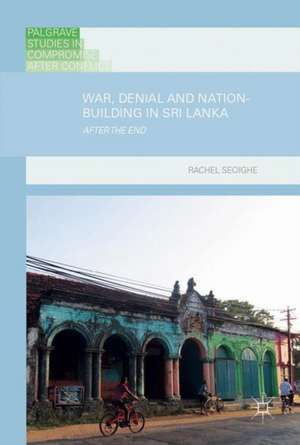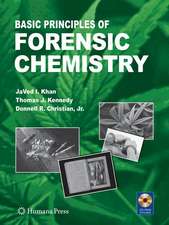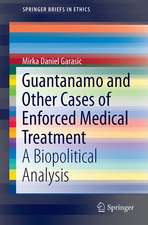War, Denial and Nation-Building in Sri Lanka: After the End: Palgrave Studies in Compromise after Conflict
Autor Rachel Seoigheen Limba Engleză Hardback – 21 dec 2017
This book begins from a critical account of the final months of the Sri Lankan civil war, tracing themes of nationalism, discourse and conflict memory through this period of immense violence and into its aftermath. Using these themes to explore state crime, atrocity and its denial and representation, Seoighe offers an analysis of how stories of conflict are authored and constructed. This book examines the political discourse of the former Rajapaksa government, highlighting how fluency in international discourses of counter-terrorism, humanitarianism and the ‘reconciliation’ expected of states transitioning from conflict can be used to conceal and deny state violence.
Drawing on extensive interviews with activists, academics, politicians, state representatives and international agency staff, and three months of observation in Sri Lanka in 2012, Seoighe demonstrates how the Rajapaksa government re-narrativised violence through orchestrated techniquesof denial and mass ritual discourse. It drew on and perpetuated a heightened majoritarian Sinhala-Buddhist nationalism which consolidated power under Sinhalese political elites, generated minority grievances and, in turn, sustained the repression and dispossession of the Tamil community of the Northeast. A detailed and evocative study, this book will be of special interest to scholars of conflict studies, political violence and critical criminology.
| Toate formatele și edițiile | Preț | Express |
|---|---|---|
| Paperback (1) | 855.81 lei 38-45 zile | |
| Springer International Publishing – 30 aug 2018 | 855.81 lei 38-45 zile | |
| Hardback (1) | 953.20 lei 6-8 săpt. | |
| Springer International Publishing – 21 dec 2017 | 953.20 lei 6-8 săpt. |
Din seria Palgrave Studies in Compromise after Conflict
- 18%
 Preț: 727.80 lei
Preț: 727.80 lei -
 Preț: 332.14 lei
Preț: 332.14 lei -
 Preț: 380.63 lei
Preț: 380.63 lei -
 Preț: 387.75 lei
Preț: 387.75 lei - 15%
 Preț: 642.03 lei
Preț: 642.03 lei -
 Preț: 387.20 lei
Preț: 387.20 lei - 15%
 Preț: 640.06 lei
Preț: 640.06 lei - 18%
 Preț: 783.50 lei
Preț: 783.50 lei - 18%
 Preț: 730.35 lei
Preț: 730.35 lei - 18%
 Preț: 730.65 lei
Preț: 730.65 lei - 18%
 Preț: 789.83 lei
Preț: 789.83 lei - 15%
 Preț: 591.79 lei
Preț: 591.79 lei - 15%
 Preț: 527.79 lei
Preț: 527.79 lei - 15%
 Preț: 697.15 lei
Preț: 697.15 lei - 15%
 Preț: 528.13 lei
Preț: 528.13 lei - 15%
 Preț: 582.63 lei
Preț: 582.63 lei - 5%
 Preț: 1286.08 lei
Preț: 1286.08 lei - 15%
 Preț: 636.63 lei
Preț: 636.63 lei - 18%
 Preț: 783.50 lei
Preț: 783.50 lei - 15%
 Preț: 640.06 lei
Preț: 640.06 lei - 18%
 Preț: 725.61 lei
Preț: 725.61 lei -
 Preț: 319.81 lei
Preț: 319.81 lei - 15%
 Preț: 640.06 lei
Preț: 640.06 lei
Preț: 953.20 lei
Preț vechi: 1162.43 lei
-18% Nou
Puncte Express: 1430
Preț estimativ în valută:
182.39€ • 190.43$ • 150.95£
182.39€ • 190.43$ • 150.95£
Carte tipărită la comandă
Livrare economică 04-18 aprilie
Preluare comenzi: 021 569.72.76
Specificații
ISBN-13: 9783319563237
ISBN-10: 3319563238
Pagini: 332
Ilustrații: XIV, 378 p.
Dimensiuni: 148 x 210 mm
Greutate: 0.67 kg
Ediția:1st ed. 2017
Editura: Springer International Publishing
Colecția Palgrave Macmillan
Seria Palgrave Studies in Compromise after Conflict
Locul publicării:Cham, Switzerland
ISBN-10: 3319563238
Pagini: 332
Ilustrații: XIV, 378 p.
Dimensiuni: 148 x 210 mm
Greutate: 0.67 kg
Ediția:1st ed. 2017
Editura: Springer International Publishing
Colecția Palgrave Macmillan
Seria Palgrave Studies in Compromise after Conflict
Locul publicării:Cham, Switzerland
Cuprins
Introduction Chapter One: A History of War in the Postcolonial State.- Chapter Two: The End: Atrocity in a State of Denial.- Chapter Three. Post-War Lived Experience: ‘Sinhalisation’.- Chapter Four: Tamil Separatism and Commemorative Practices.- Chapter Five: Transnational Discourses of Terrorism, Humanitarianism and Sovereignty.- Chapter Six: Sri Lankan Reconciliation and the Appropriation of Transitional Justice.- Conclusion: Consolidating the ‘National Story’.
Notă biografică
Rachel Seoighe is a Criminologist and Socio-Legal Scholar and a Lecturer in Criminology (Human Rights and Criminal Justice) at Middlesex University’s Department of Criminology and Sociology, UK.
Textul de pe ultima copertă
This book begins from a critical account of the final months of the Sri Lankan civil war, tracing themes of nationalism, discourse and conflict memory through this period of immense violence and into its aftermath. Using these themes to explore state crime, atrocity and its denial and representation, Seoighe offers an analysis of how stories of conflict are authored and constructed. This book examines the political discourse of the former Rajapaksa government, highlighting how fluency in international discourses of counter-terrorism, humanitarianism and the ‘reconciliation’ expected of states transitioning from conflict can be used to conceal and deny state violence.
Drawing on extensive interviews with activists, academics, politicians, state representatives and international agency staff, and three months of observation in Sri Lanka in 2012, Seoighe demonstrates how the Rajapaksa government re-narrativised violence through orchestrated techniques of denial and mass ritual discourse. It drew on and perpetuated a heightened majoritarian Sinhala-Buddhist nationalism which consolidated power under Sinhalese political elites, generated minority grievances and, in turn, sustained the repression and dispossession of the Tamil community of the Northeast. A detailed and evocative study, this book will be of special interest to scholars of conflict studies, political violence and critical criminology.
Caracteristici
Provides timely analysis of Sri Lanka’s post-war nation-building project Considers the demands of the global liberal order and the workings of international forces on post-war Sri Lanka Examines this exclusionary form of nationalism in political performances and the authorship of public space










